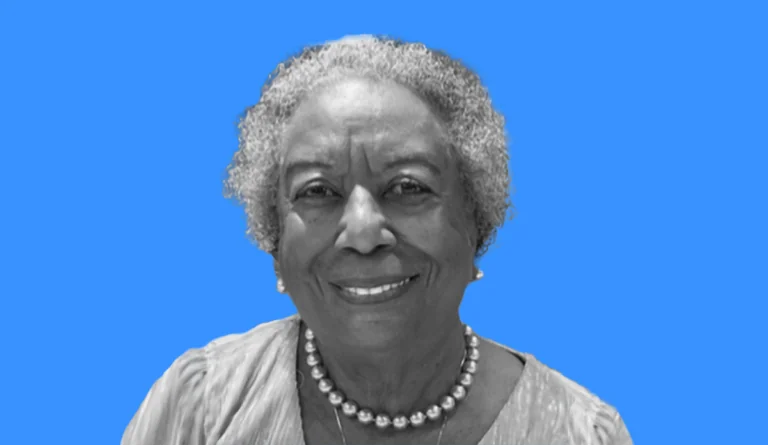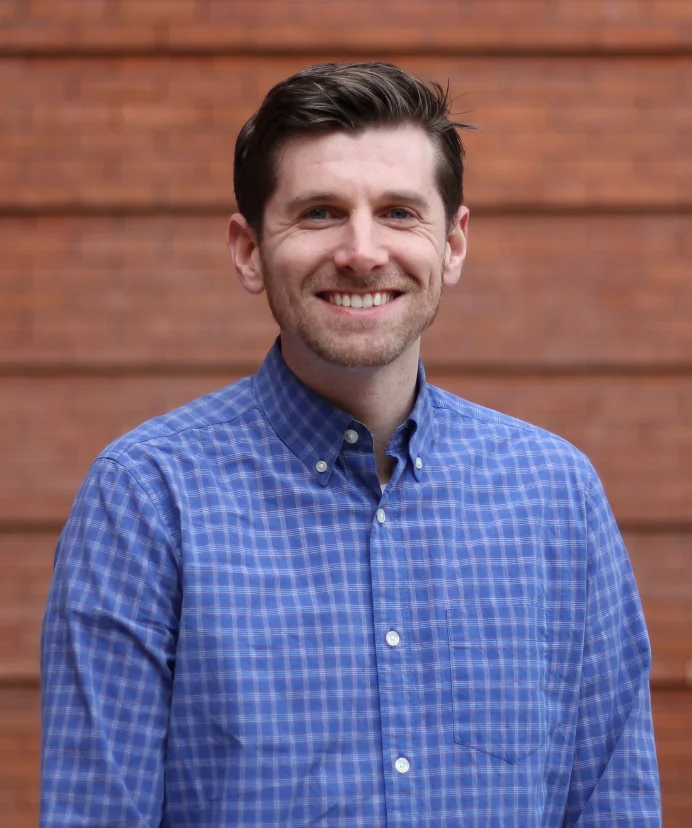Lillie Jewel Tyson Head
Lillie Jewel Tyson Head is the president of Voices for Our Fathers Legacy Foundation, an organization honoring the 623 men who were victims of the U.S. Public Health Service Syphilis Study at Tuskegee. Her father, Freddie Lee Tyson, was one of the men in the study.

Read Time: 5 minutes
Published:
Lillie Jewel Tyson Head is the president of Voices for Our Fathers Legacy Foundation, an organization whose mission is to foster education, social justice, and medical research as a way or honoring the legacies of the 623 men who were victims of the United States Public Health Service Study of Untreated Syphilis (USPHSUS) in the Negro Male at Tuskegee and Macon County, Alabama, 1932-1972. Through her leadership and compassion, Head continues to advocate for equity in her work. Her father, Freddie Lee Tyson, was one of the men in the study. He also helped establish the Tuskegee National Forest, helped build Moton Field (home of the Tuskegee Airmen), and worked as a carpenter and a shop union steward.
Public Health Post: What was your father like? Can you tell us about him?
Lillie Jewel Tyson Head: My father grew up in Alabama during segregation in a small community in rural Macon County and then in Tuskegee. He was not formally educated because he did not have the opportunity and had to work. Instead, he was self-educated. Through discrimination, oppression, and lack of opportunity, his faith kept him steady. He believed that things could get better and things would get better for the future. He would always say, “You are only as good as your word. And if your word does not support your actions, then it’s all meaningless.”
How did you and your family come to learn about your father’s role in the study?
In Fall 1972, my brother Wallace was in the Air Force living in Texas. Wallace called my father after reading an article in the November issue of Ebony Magazine, and asked if he remembered a study in Tuskegee where men were so-called “being treated” for syphilis. But we had not connected the study to my father in any way at the time.
At first my father didn’t remember, but later recalled talking to a nurse involved with the study. This was before he met my mother and was living with his parents, who were sharecroppers. The nurses came to tell him and other men that they could “get treatment” and he went a few times to do that.
What were your initial reactions to finding out about your father’s experience?
When I was 28 years old in 1972, a representative from the CDC contacted my father and confirmed he was a participant in the study’s Syphilitic group. My father was 67, so he had aged since he was involved with the study. Initially, we were all outraged and in shock. So many questions came to mind: How could a human being deny treatment to another human being when it was available? How could so many years go by without any information or explanation about such wrongdoing? What happened to the other men and their families?
My father later shared that some of the men that he knew, who were also found to be in the study, had suffered and their wives and children suffered too. It was a very emotionally challenging period of time, he said.
We are making change—transforming the study from shame and trauma to honor and triumph.
How did your father cope with his experiences in the study?
I asked my father how he felt about knowing that he was in such a study. I remember he said, “I can’t do anything about what has happened to me and all of those other men, but it’s up to you all to make sure that nothing like this happens to anyone.” I mentioned, we knew when he said something, he meant it. So that had an impact on me.
Years later, many descendants of the study met in Tuskegee at the National Center for Bioethics in Research and Healthcare, the center that was developed after President Clinton’s apology in 1997. There, we had the opportunity to get involved and to use the participant’s suffering, their legacies and their impact on research and medicine today. We were able to share their stories, remember them, and help to make sure that it doesn’t happen again. And that’s where our purpose for organizing Voices of Our Father’s Legacy Foundation came into place. We are making change—transforming the study from shame and trauma to honor and triumph.
Was it difficult to trust health care professionals after learning about what happened to your father?
All of the descendants of these men or their neighbors or someone who knew them are now more cautious of everything as a result of this study. I believe this is what brings about hesitancy and reluctance in medical treatment and in public health, since it was the U.S. Public Health Department who began the study.
We still wanted the best care possible. There has to be a certain amount of trust when you go to the doctor, especially when you are ill and know that you need care. The community of Tuskegee and the VA hospital had medical doctors at the institute. And there was an especially great community of Black doctors around to give us the care that we were looking for.
What actions do you think have been the most meaningful and profound in establishing justice and creating reparations?
There was a long hiatus from when news of the study was revealed in 1972 to an official apology by President Clinton in 1997. Even before the apology came, it was encouraging and inspiring to see the formation of a legacy committee, who worked to bring that apology about. The annual gathering of descendants at Tuskegee provided us with an opportunity to come together.
Most recently, we had a public apology from Chris Koller in 2021 on behalf of the Milbank Memorial Fund (the organization that financially supported the burial insurance for the men who agreed to have autopsies upon their death in the study). It was inspiring to see someone like Chris step forward without being asked, knowing the history of the study and trying to make things right. Since then, Chris and I have partnered in speaking out on how healing and trust can take place.
Head recently spoke with Chris Koller at a Public Health Conversation hosted by Boston University School of Public Health. View the recording here.
Photo provided



